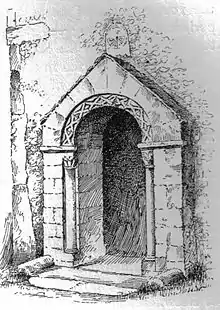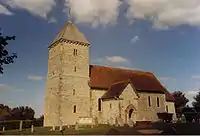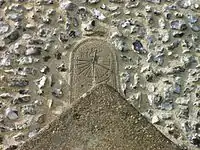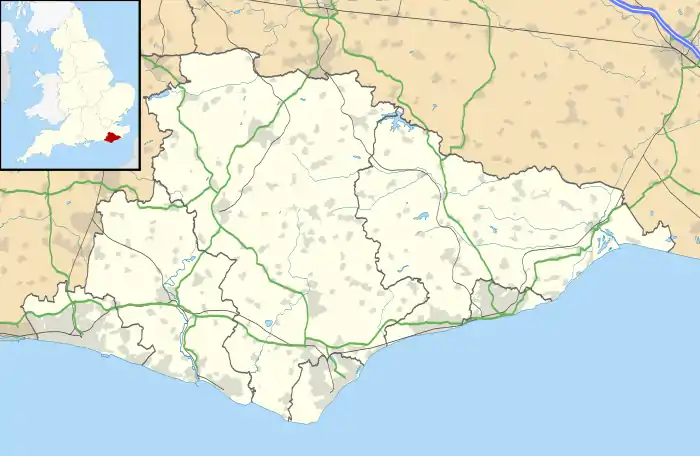Bishopstone, East Sussex
Bishopstone is a village with a population of about 200 people, with the nearby village of Norton, located along a dead-end road west of Seaford, East Sussex (where, at the 2011 Census, the population was included), in East Sussex, England.

History


Bishopstone was an episcopal manor, hence its name meaning "dwelling place of the bishop". The church, dedicated to Saint Andrew, is thought to date from the 8th century, and may well be the oldest in the county. Bishopstone church has an ancient canonical sundial in its porch. The sundial is inscribed with the name Eadric, the King of Kent in 685.[2] It was rebuilt in 1200.
Bishopstone village hall is part of the village life and has local events, it is also the venue for the local table tennis club and is located behind the church. There are no shops or pubs in the village.
Notable residents
In the 7th century the village is believed to have been the home of a saint, Leofwynn; she was venerated locally in the Dark Ages and medieval times.
The poet James Hurdis was born in the village and there is a memorial to him in the church. The writer and "clairvoyante" Nell St. John Montague is buried in Bishopstone, and her name is included on a memorial for the war dead (she died in London during a bombing in World War II).[3]
Transportation
Bishopstone is served by Bishopstone railway station, which replaced the original station, Bishopstone Beach Halt, in 1942.
References
- Wall, J. Charles (1912), Porches & Fonts. Pub. Wells, Gardner, Darton & Co., Ltd., London. P. 97.
- Wall, J. Charles (1912), Porches & Fonts. Pub. Wells, Gardner, Darton & Co., Ltd., London. P. 67.
- Kevin Gordon, (2018-02-21). "A War-Memorial Mystery!". Quirky Sussex History. Retrieved 2019-08-15.
